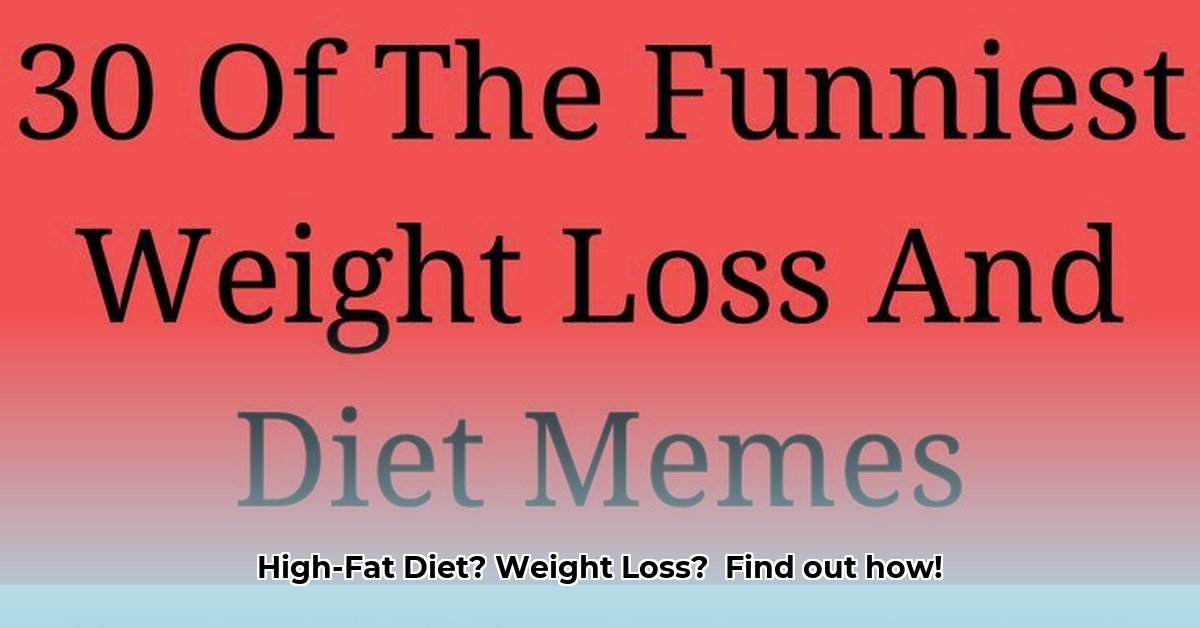
High Fat Weight Loss Diet: Understanding the Ketogenic Diet Craze
The "high-fat weight loss diet" clue in your New York Times crossword likely pointed to the ketogenic diet, a popular—and often misunderstood—eating plan. This article explores the ketogenic diet, examining its purported benefits, potential risks, and the current state of scientific understanding, separating hype from evidence-based information. We aim to equip you with knowledge to make informed decisions about your health, without resorting to unsubstantiated claims. Is the ketogenic diet a sustainable solution for weight management, or is it simply a passing trend? Let's investigate.
What is the Ketogenic Diet?
The ketogenic diet, or keto, is characterized by a very low carbohydrate intake, a moderate protein intake, and a high fat intake. This macronutrient ratio forces the body into a metabolic state called ketosis, where it begins to burn stored fat for energy instead of glucose (sugar), which is typically derived from carbohydrates. While seemingly simple, adhering to this restrictive diet requires careful meal planning and monitoring. The transition to ketosis often involves adapting to a new pattern of eating and energy production.
Reported Benefits and Weight Loss Claims
Many individuals report significant weight loss in the initial stages of a ketogenic diet. Anecdotal evidence also suggests potential improvements in blood sugar control and certain cholesterol levels. However, it's imperative to acknowledge that these benefits largely stem from individual experiences and observational studies, lacking the robustness of large-scale, randomized controlled trials. More comprehensive and longer-term research is necessary to solidify these claims. The rapid initial weight loss often fuels the diet's popularity; however, sustaining this weight loss long-term remains a subject of ongoing research. Are these early improvements sustainable? Long-term studies have yet to definitively answer this question.
Potential Risks and Side Effects
Transitioning to ketosis can cause what's commonly known as the "keto flu," characterized by symptoms such as headaches, fatigue, nausea, and dizziness. These usually subside as the body adjusts. However, potential longer-term risks are more concerning. Nutrient deficiencies can occur due to the elimination of entire food groups. Changes in fluid balance may lead to kidney stones. Constipation is also a common side effect. The long-term effects on cardiovascular health and overall metabolic health remain largely unknown and are a subject of ongoing scientific investigation. The impact of a prolonged ketogenic diet on health requires further research.
Current Scientific Evidence: A Critical Review
Scientific literature surrounding the ketogenic diet presents mixed results. Some studies show promising short-term weight loss, especially in individuals with obesity or type 2 diabetes. However, many studies are limited in scope and lack the long-term data necessary to determine its overall efficacy and safety in comparison to alternative weight-loss strategies. Furthermore, the findings often vary depending on dietary adherence and individual responses. What are the true long-term health consequences? The current body of scientific evidence cannot definitively answer this crucial question. Substantial further research is required to establish long-term safety and efficacy.
Who Might Benefit and Who Should Avoid Keto
Under strict medical supervision, the ketogenic diet may be considered for individuals with specific health conditions, such as type 2 diabetes, after careful assessment by a healthcare professional. However, it is strongly contraindicated for pregnant or breastfeeding women, individuals with kidney problems, or those with certain other pre-existing health conditions. A doctor's guidance is absolutely vital before embarking on a ketogenic diet. Who is the keto diet truly suitable for? The answer is not straightforward and requires personalized medical evaluation.
Conclusion: Sustainable Habits over Fad Diets
The ketogenic diet's prevalence, even appearing in crossword puzzles, highlights its popularity. However, while some experience short-term success, the long-term health impacts remain largely unknown. It's crucial to approach weight loss with a focus on healthy, sustainable eating habits rather than relying on fleeting diet trends. Always consult a healthcare professional before starting any new diet. Is keto a sustainable lifestyle change, or is it merely a temporary fix? The answer depends on individual circumstances and long-term adherence, an aspect currently lacking in robust scientific data.